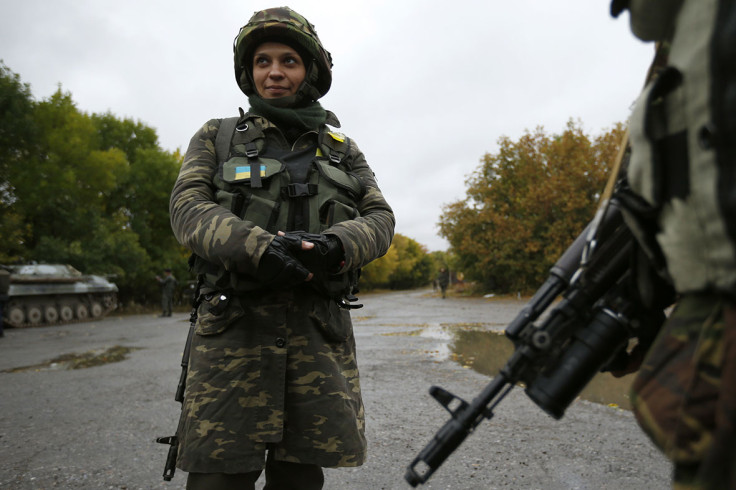Over 75,000 women are fighting for Ukraine's freedom
Over 75,000 women in Ukraine have chosen to play key on-the-ground roles in the fight for Ukraine's freedom. Several women have been recognised as Ukraine's heroines, and more than 5,000 women are fighting on the front line.

More than 75,000 women in Ukraine have chosen to join others in the fight for Ukraine's freedom. Over 60,000 women in Ukraine have volunteered to serve in the Ukrainian military. More than 5,000 of them, are currently serving on the front line.
Over 10,000 more women in Ukraine are also playing a key on-the-ground role in the Russo-Ukraine War working as paramedics, teachers, journalists, and politicians.
Hannah Maliar, the Deputy Minister of Defense of Ukraine, described the women's loyalty going unnoticed, saying: "They are not written about or filmed. Meanwhile, they are working in the army. They do their important work every day. They are engaged in ensuring equal rights and opportunities for women and men in the army."
The martial law in Ukraine prevents most men in Ukraine, who are of military age, from leaving the country. However, the women in Ukraine are not bound by such restrictions. These women have chosen to represent Ukraine internally as soldiers, and internationally as unofficial ambassadors.
Mariia Lonova, a Member of Parliament in Ukraine, declared that women are "such an asset for our country".
Like the Deputy Minister of Defense, Lonova also recalled "the success and stories of women who have done so much to meet very urgent needs" and their contributions to the Russo-Ukrainian War have gone unnoticed.
"Ukrainian women are bearing a particularly heavy burden in this war... Women serving as soldiers are dying at the front," she added.
With reference to the women soldiers who have children, Mariia Lonova stated: "When their husbands, fathers, brothers and sons are killed, they are left to take care of the family, which often includes children and elderly relatives."
Hannah Hopko, another Ukrainian Member of Parliament, launched the International Centre for Ukrainian Victory in Warsaw and has discussed the future of Ukraine with elected officials and policymakers in more than 14 countries.
Hopko also spoke out about all the women on the front line who are also experiencing long periods of separation from their families.
She said: "All women, mothers, sisters, wives, and daughters are fighting for our victory, freedom, and independence. We do it because we are full of love, but the sacrifices that come with this can be incredibly painful."
Kateryna Polishchuk is one of the several women in the Ukrainian army who went viral for her heroic reputation. Kateryna Polishchuk was a paramedic and part of the Ukrainian Armed Forces stationed at the Azovstal steel plant, which was under siege by the Russian Armed Forces for more than a month.
Toward the end of the siege, videos of Kateryna Polishchuk singing, while being surrounded by the Russian Armed Forces, went viral. Her voice inspired the defenders of Mariupol to remain motivated and her voice became a symbol of Ukraine's resilience against Putin.
Around a week later, she was captured by the Russian occupiers.
Eventually, to her disbelief, Kateryna Polishchuk was returned to Ukraine, as part of a prisoner exchange.
The Deputy Prime Minister of Ukraine, Iryna Vareshchuk, told reporters that "Ukrainian women soldiers are treated in an atrocious manner in Russian captivity. Women have their heads shaved and their dignity is humiliated".
Another recognised heroine of Ukraine is Oleksandra Matviichuk, a Human Rights Lawyer. Oleksandra Matviichuk is the leader of Kyiv's Centre for Civil Liberties, which became the first Ukrainian organisation to receive the Nobel Peace Prize in 2022.
Speaking about the women who volunteered to fight for Ukraine, Oleksandra Matviichuk said: "We cannot choose the country in which we are born or the period we live in, but we can always choose whether to be an active person and respond to challenges or to be passive and indifferent."
Recognising the uncertain future for the soldiers fighting in Ukraine, Mariia Lonova (MP) concluded: "We have no luxury to cry or to be weak... We have to be strong because at stake is the future of our children and grandchildren; the future of our nation."
© Copyright IBTimes 2024. All rights reserved.






